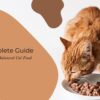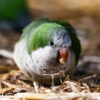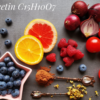Cockatiels enjoy fruits, and providing a varied and balanced diet for your feathered friend is essential. They are adorable and intelligent, so we will explore whether watermelon is safe for cockatiels to eat. We will provide guidelines to ensure your pet’s health and happiness.
Can Cockatiels Eat Watermelon?
Watermelon is great for cockatiels, and the benefit that watermelon can provide for birds is hydration. Vitamin A, Vitamin C, Potassium, and Phosphorus which are great for your bird. Keep in mind the following things to consider while offering watermelon to your cockatiel:
Seedless Watermelon
It’s essential to feed your cockatiel seedless watermelon. The seeds can be a choking hazard and should be removed before giving the fruit to the bird.
Moderation is key
Watermelon should be given as an occasional treat and not as a staple good. They have specific dietary needs, and their main diet should consist of high-quality bird pellets, fresh veggies, and a limited amount of fruits.
Wash thoroughly
Before serving watermelon, make sure you have washed the fruit to remove dirt or pesticides that might be present.
Cut into small pieces
Cut the watermelon into small, bite-sized pieces that are easy for your cockatiel to handle and consume.
Watermelon Juice
You can give a bird watermelon juice but prefer fresh juice to packaged juice. Once the watermelon pieces, take a strainer and strain the juice to remove the seeds.
The Health Benefits Of Watermelon For Cockatiels
Here are the following health benefits of Watermelon for Cockatiels when considering what to feed your bird:
Vitamin A
Deficiency of vitamin A causes overgrowth of your bird’s beak and nails. Make sure to keep everything in check. It causes chipping and flaking of the beak and nails, so watermelon has a good quantity of vitamin A to feed your cockatiels.
Vitamin C
This vitamin C is excellent for reducing stress, and Vitamin C deficiency can impact mental health. This is great for the immune system and creating antibodies to keep your bird healthy.
Potassium
This is also great for boosting metabolism and strengthening bones. It is great for reducing blood pressure while at the same time helping to retain water. A high potassium diet helps to prevent strokes, keeping diseases like kidney stones and osteoporosis.
Vitamin B1
It keeps your bird’s nervous system in check, so make sure coordination and motor control work similarly. A deficiency in vitamin B1 can cause loss of appetite to avoid extreme cases and loss of life. There are so many foods that have vitamin B to keep the bird coordinated.
Watermelon Nutritional Value
| Nutrients | Quantity |
| Vitamin A | 569 IU |
| Vitamin C | 8.2 g |
| Vitamin E | 0.05 g |
| Folates | 3 mcg |
| Niacin | 0.178 mg |
| Pantothenic acid | 0.226 mg |
| Pyridoxine | 0.043 mg |
| Thiamin | 0.034 mg |
| Sodium | 1 mg |
| Potassium | 112 mg |
| Calcium | 7 mg |
| Iron | 0.12 mg |
| Copper | 42 mcg |
| Magnesium | 10 mg |
| Manganese | 0.037 mg |
| Zinc | 0.11 mg |
| Carbohydrates | 7.6 g |
| Protein | 0.6 g |
| Total fat | 0.15 g |
| Dietary fibres | 0.4 g |
| Energy | 30 kcal |
How Much Watermelon Should Cockatiels Eat?
A thin slice of watermelon for the bird is fine. Watermelon has 92% water, so anything more than a week’s slice or small chunks could be dangerous. When it comes to watermelon, less is more, although it is great in certain situations. They may become dehydrated, and watermelon would be a great solution to keep everybody happy and healthy.
Can Cockatiels Overeat Watermelon?
Yes, cockatiels can overeat watermelon. It has too much water content to be fed on daily. Watermelon isn’t an issue for birds unless you feed your cockatiel watermelon. Having too much watermelon has some side effects, but these issues can be fixed by adding fibre to your diet.
How Much Should You Give Your Bird?
Watermelon is loaded with so many vitamins and minerals, but the excessiveness of everything can be bad. Fruits and vegetables should be 20-25 percent of the daily intake of calories. Watermelon shouldn’t exceed 10 percent of a bird’s daily diet.
What Are The Dangers Of Giving Watermelon To Cockatiels?
Watermelon is good for birds, but overfeeding watermelon is harmful to make it sick. It has a high sugar content, so if you overfeed them, your bird may develop obesity, diabetes, and other health issues. Start feeding a small amount to let the digestive tract adjust to avoid side effects.
Which Food Will Your Cockatiel Love?
Cockatiels love watermelon and like different fruits such as berries, papaya, kiwi, apple slices, and more. You should give your cockatiel a little fruit daily so they don’t get picky about the food. Make sure you are not overdoing this because a bit of fruit is good for birds; otherwise, it can lead to dietary problems.
Fruits That Need To Avoid Feeding Cockatiel
There are the following fruits that should be avoided to feed your cockatiel:
Avocado
This one is the fruit that should be kept away from a cockatiel at any cost. Avocados contain persin, which is a fungicidal toxin. While humans can handle it without any problems. You can find persin in every element of the avocado, including the pit, peel, and flesh, so keep it away from your bird.
Apricot
The fruit is safe for parrots, but the pit and leaves are toxic. The bark of the tree is considered toxic.
Balsam Pear
This is also known as bitter gourd or melon, where the balsam pear’s seeds and outer rind are toxic for parrots.
Daphne
The berries of the Daphne fruit are toxic for them. All parts of the berry are considered toxic.
Can Cockatiels Eat Watermelon Seeds?
They can eat watermelon seeds, although many bird owners take them out. The only issue with watermelon is the rind. The rind is usually coated in pesticides to keep them healthy and bug-free while growing. Although you can feed your pet the watermelon rind and seed by soaking them in water for some time, soften them up.
Final Thoughts
These are the few aspects that cockatiels love eating watermelon so that you can feed them in moderation. Keep in mind how to feed them small pieces of watermelon and remove the rind and seeds from the watermelon pieces.
- Can Cockatiels Eat Watermelon? Read Before You Feed - 18 September 2023
- 10 Best Brush for Bernese Mountain Dogs - 27 August 2023
- Can Bearded Dragons Eat Blackberries? - 18 August 2023
















